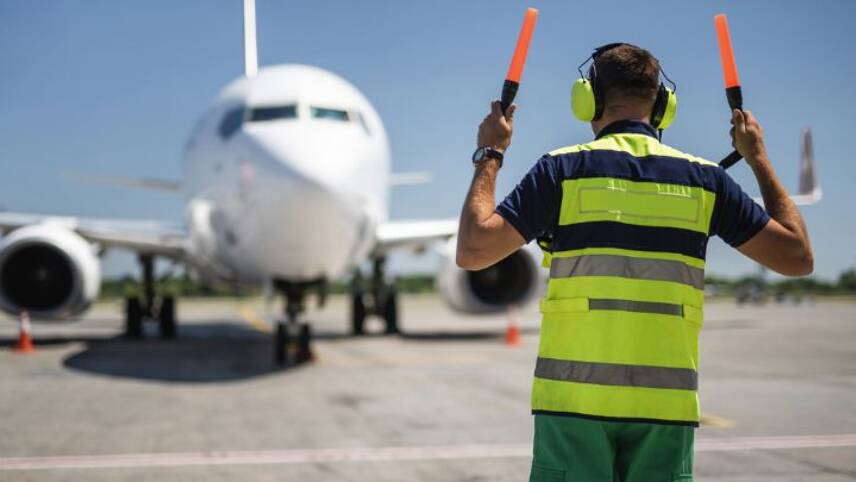Register for free and continue reading
Join our growing army of changemakers and get unlimited access to our premium content

The Jet-Zero Strategy does not outline measures to cap or reduce passenger numbers – a move recommended by the Government’s own climate advisors
The new research was published by the Royal Society on Tuesday (28 February) and analyses the technologies that the aviation industry is exploring in order to decarbonise and reduce its 8% contribution to the UK’s carbon footprint.
The UK Government’s Jet-Zero Strategy focuses heavily on aircraft efficiency improvements and investing in alternative fuels. However, new research from the Royal Society warns that “there is no single simple answer to decarbonising aviation”, other than “reducing the amount of air travel or relying on long-term offsets”.
The research warns that any solution would face challenges in terms of the availability and accessibility of sustainable feedstock and that further lifecycle analysis of fuels is required to highlight how effective solutions would actually be.
On hydrogen, the report notes that it would need to be produced using low-carbon electricity, but that it would require up to three-and-a-half times the generation of wind and solar recorded in the UK in 2020. Additionally, the formation of contrails from hydrogen-powered engines “requires further research”.
The research also notes that only some biofuels would be viable feedstock for low-carbon aviation and even then the availability of feedstock is a huge restriction to the sector’s decarbonisation aspirations.
The Royal Society states that meeting existing aviation demand of around 4,000 daily flights – although this is expected to increase over the coming years – with biofuels from energy crops would require around half of the UK’s existing agricultural land and almost 70% of the UK’s total land area.
Aircraft solely powered by batteries are “not considered” in the research as the development timescales for viable solutions for commercial flights aren’t compatible with the 2050 deadline for net-zero.
The research also warns that regulatory and training conditions will need to be examined. “Depending upon the fuel used, changes to aircraft operations, ground handling systems and airport layouts might be required,” the report states. “In addition, aviation relies upon trained, qualified and regularly refreshed staff in key roles who are licenced to carry out their jobs. Alternative low carbon jet fuel technologies cannot be introduced effectively without updating skills, training, and professional standards.”
Last summer, the Department for Transport (DfT) published its much-anticipated Jet-Zero Strategy – its plans for aligning the aviation sector with the net-zero targets first outlined in its 2021 Transport Decarbonisation Plan. These are 2040 for airport operations in England and domestic flights in the UK, and 2050 for international flights.
The Jet-Zero Strategy does not outline measures to cap or reduce passenger numbers – a move recommended by the Government’s own climate advisors and that has been criticised by numerous green groups.
Instead, the DfT is placing heavy bets on the ability of airlines to improve the fuel efficiencies of their planes and to shift to sustainable aviation fuels (SAFs). It targets a 2% improvement in fuel efficiency every year from 2022 and confirms a SAF mandate, requiring all suppliers of fuel to airports to use blends of at least 10% SAFs. A carbon standard will be implemented in a bid to spur the market for the fuels with the lowest footprint.
In the last few weeks alone, companies such as Heathrow Airport and Boeing have announced new SAF initiatives to increase uptake and blend them with traditional fuels.


This comment has been removed by the commenter.
I’m afraid the only answer is that we have to fly less. This also means we need to think about what a long-term low-aviation future will look like: no need for airport expansion, more high-speed trains within the UK to reduce domestic flights (anyone for a bridge/tunnel to Northern Ireland?), possibly even more greenhouses to expand fruit and vegetable growing seasons locally, reshoring of some critical supply chains. I will miss being able to get to “exotic” locations for very low cost, but having not flown since 2019 (largely due to the pandemic) realise it’s not as bad as I thought it might be. And I do expect to fly again this year, to two events (one in Africa, one in Latin America) that I cannot sensibly do virtually, so am not claiming to be perfect!